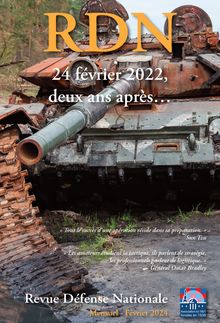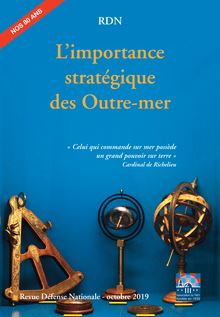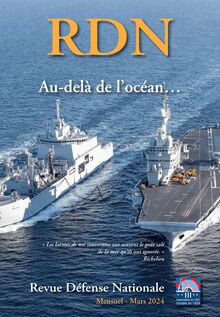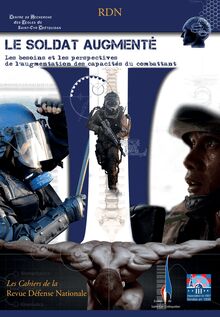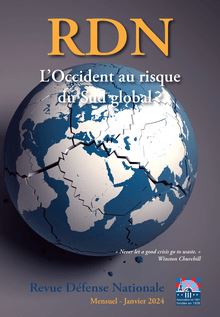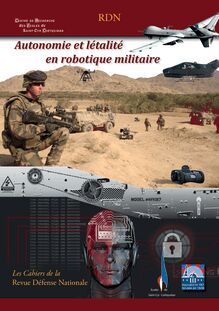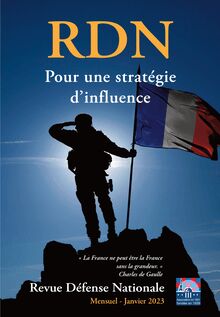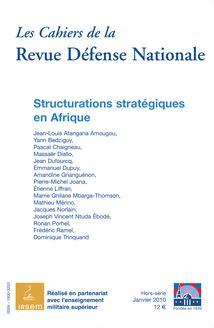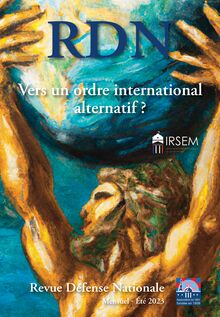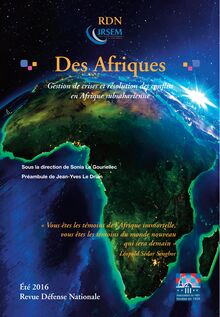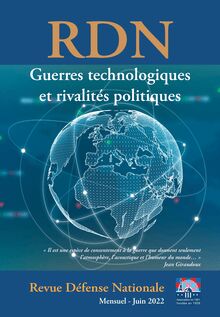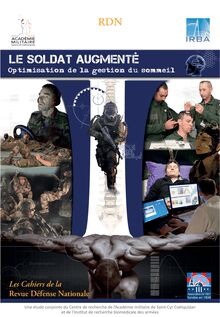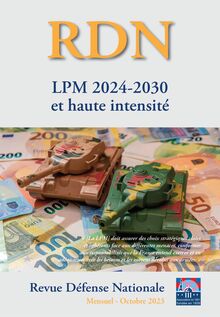-
 Univers
Univers
-
 Ebooks
Ebooks
-
 Livres audio
Livres audio
-
 Presse
Presse
-
 Podcasts
Podcasts
-
 BD
BD
-
 Documents
Documents
-
- Cours
- Révisions
- Ressources pédagogiques
- Sciences de l’éducation
- Manuels scolaires
- Langues
- Travaux de classe
- Annales de BEP
- Etudes supérieures
- Maternelle et primaire
- Fiches de lecture
- Orientation scolaire
- Méthodologie
- Corrigés de devoir
- Annales d’examens et concours
- Annales du bac
- Annales du brevet
- Rapports de stage
La lecture à portée de main
63 pages
English
Découvre YouScribe en t'inscrivant gratuitement
Je m'inscrisLes Cahiers de la Revue Défense Nationale - The Conditions for Lasting Stabilityin Africa , magazine presse
Découvre YouScribe en t'inscrivant gratuitement
Je m'inscris
Obtenez un accès à la bibliothèque pour le consulter en ligne
En savoir plus
En savoir plus
63 pages
English
Obtenez un accès à la bibliothèque pour le consulter en ligne
En savoir plus
En savoir plus

Description
Le savais-tu ? Tu peux t'abonner à ce journal en cliquant sur la petite cloche. Tu recevras alors une alerte par mail à chaque nouvelle parution !
Sujets
Informations
| Publié par | Revue Défense Nationale |
| Date de parution | 01 janvier 2022 |
| Langue | English |
| Poids de l'ouvrage | 1 Mo |
Extrait
The Conditions for Lasting Stability in Africa
Translation directed by Mike Storey
Translated team Barry Cox John Halford Mike Storey
This book is downloaded from the website of RDN www.defnat.com
5
10
18
26
29
Contents
African Security Challenges in the Great Lakes, the Horn of Africa and the Sahel (Revue Défense NationaleNo. 758, March 2013) PHILIPPE HUGON The author, who is an expert on African issues, presents a round-up of the current hot spots in Africa. He exposes the crises, insidious and overt, that are affecting the Great Lakes region, the Horn of Africa and the Sahara-Sahel zone.
Factors of Conflict in West Africa (Revue Défense NationaleNo. 734, November 2010) MASSAËR DIALLO In order to understand the latent sources of conflict in West Africa, it is necessary to gain full mea-sure of the structural vulnerabilities of the region and of the external interference that weakens it.
African Insecurities CYRIL ROBINET Attacks on security in Africa put a brake on economic operations and are both cause and effect of bad development. Contrary to the undefined chaos in which the frequent hackneyed clichés would have us believe, such insecurities arise from distinctly different paths of reasoning. The first of these concerns policy – as much in its ideology as its practice, the latter often in knee-jerk reaction to crisis. The second is weakness in sovereignty of the state, which is a source of opportunity for criminal activity. The third relates to consequences of worldwide turbulence, which Africa has great difficulty in facing up to.
The new African century: towards another kind of security (Revue Défense NationaleNo. 746, January 2012) POUSSI SAWADOGO In drawing upon lessons learned from the recent falls of African dictators and from external interventions, the author calls for a new posture for African security founded on true political righteousness formed of public order, education and development, and on collective regional grouping of military assets.
The African Peace and Security Architecture (APSA) MARC CONRUYT The author offers a history and description of the African force in waiting, one that looks towards a continental view of peace, security and stability within Africa, based on sharing of roles between pan-African and regional economic community levels.
34
37
47
56
60
A Toolbox for Crisis Prevention and resolution DCSD Three key challenges face those countries emerging from crisis: reconciliation, demobilisation and reconstruction. The Directorate for security and defence cooperation proposes a mode of action that can be adapted to suit the peculiarities of each case.
The Economic Dimension of Insecurity in the Sahel (Mondes, Les Cahiers du Quai d’OrsayNo. 9, De cember 2011) JEAN-BERNARD VÉRON Insecurity in the Sahel appears in many forms and calls for complex strategies for responding to them. The author suggests putting aside the security-based approach in order to favour a solution based on economic and social development projects. While remaining conscious of the limitations of such an approach, he offers some avenues for deeper thought.
The Civic Service: A Concrete Security-Development Link in Africa (Mondes,les Cahiers du Quai d’OrsayNo. 8, Autumn 2011) BRUNO CLÉMENT-BOLLÉE Civic service for action for development is intended to train young volunteers for a trade, but has to adapt to the needs of each country in order to support national development. With its link to the military environment, for this ambitious programme to succeed requires three condi-tions to be fulfilled concurrently. The benefits to be had are numerous and include combating the neglect of youth and the over-manning of the forces, restoring harmony between the popu-lation and the armed forces, conducting the process of disarmament, demobilisation and reha-bilitation and establishing long-lasting security and stability in Africa.
The Value of a SCAD in the Reconciliation Process CHARLES KONAN BANNY On the occasion of the African Union seminar in March 2013 on the civic action and development service, the author offers his thoughts on the role of such a service during the reconciliation process currently under way in his own country, Côte d’Ivoire.
Civil Defence, a vital necessity DCSD Civil protection provides essential help to state authorities when responding to emergency situa-tions brought on by an increasing number of more devastating natural or accidental disasters. This article describes one of the responses DCSD can bring to its partner countries.
African Security Challenges in the Great Lakes, the Horn of Africa and the Sahel
Philippe Hugon
Professor emeritus at Paris-Ouest-Nanterre, and direc-tor of research at theInstitut de relations internationales et stratégiques(Iris).
n 2012 Africa was home to six high-intensity conflicts, thirty-four of medium leInges arise from the links between control of resources (or of the circuits within intensity and forty-five low intensity. The three principal regions of insecurity are the Great Lakes, the Horn of Africa and the Sahel, where the main chal-which those resources are trafficked) and ideological factors, created either through exploitation of the clergy (as in the Sahel, Mali and Somalia) or of ethnic identity factors (as in Kivu). Domestic armed conflict within African countries is linked to regional and international networks and, contrary to what realist theory might lead one to believe, cannot be considered in terms of nation states pursuing power games. Asymmetric warfare is today won less by sheer force than by soft power, starting with the media, disinformation, exploitation of the players concerned, the role of lobbying and shapers of opinion. Cyberspace has become the principal field of recruitment for, and information to and from, terrorist movements. Before 11 September 2001, there were fifteen Islamic web sites on the internet: a stark contrast to the thousands that exist today. Al-Qaida has extended its influence in, and from, Somalia, and in the arc joining the Sahara and the Sahel: two zones greatly affected by the attraction of radical Islam, mass poverty, trafficking, terri-tory beyond state control and an absence of demographic transition.
The Great Lakes conflicts: territorial and mining issues in Kivu
The Democratic Republic of Congo (DRC) or Congo-Kinshasa, is home to more than 60 million inhabitants, spread over 2,345,000 square kilometres of terri-tory. War has resulted in some 4 million deaths since 1996. The DRC had never had any form of democratic process before 2006, and a part of its territory remains under the influence of warlords and plunderers supported by neighbouring countries, seve-ral to the north. With its vast underground wealth, the DRC has become known as a geological scandal and yet the state has no control at all over a considerable area of
Les Cahiers de laRevue Défense Nationale
5
MARCH 2013
6
African Security Challenges in the Great Lakes, the Horn of Africa and the Sahel
territory, and little over the wealth that stirs up such envy in other states, among the forces and militias of neigh-bouring countries and among those multi-national groups which take Sahel advantage of the lawless environment. Horn As a result, the economy has become of Africa unofficial, shadowy and criminalised. The major crisis centre lies in the bor-Great der region of Kivu, close to Burundi, Lakes Rwanda and Uganda: this region, rich in natural resources, has seen a prolife-ration of armaments and remains a socio-ethnic hot spot. The 1994 geno-cide in Rwanda aggravated the conflicts and led to a massive influx of Tutsi and, later, Hutu refugees and migrants. Northern Kivu lies within Rwanda’s sphere of influence and is home to 1.3 million migrants andrefugees.Itis richin arable land and mineral resources (principally coltan), which are controlled by a number of militia groups including Hutus, Tutsis belonging to the National Congress for the Defence of the People (CNDP sic), M23 (a movement created by soldiers who had participated in Laurent Nkunda’s rebellion), and Mai-Mai, and also by Kabila’s forces. The UN stabilisation force MONUSCO, which maintains 6,000 men in North Kivu with a vague mandate, is virtually impotent in the face of a humanitarian drama involving half a million displaced persons.
Conflict and terrorism in Somalia and the Horn of Africa Somalia is divided into three states, Puntland, Somaliland and Mogadishu, and is a member of the Arab League. The country has more than 8 million inhabi-tants spread across 638,000 sq. km, and for twenty-five years has seen Balkan-style clan warfare and widespread chaos with a heavy toll of between 300,000 and 500,000 dead. Each clan has its own militia. Somalis all speak the same language (Somali), are Sunni Muslims, and are a single people of pastoral tradition. The conflicts are clannish. Between 1992 and 1994, international military interventions, and those of the United States have ended in failure, like that portrayed in the film Black Hawk Down. Islamic courts, supported in particular by Eritrea, used the Shura to seize power from the faction heads in the summer of 2006. They brought together many different groups, going as far as to include radical Islamists, and were accused of being an African version of the Afghan Taliban. At the end of 2006, the Transitional Federal Government, supported militarily by Ethiopia and the United States, and indirectly by Kenya, Uganda and Yemen, retook Mogadishu, yet without taking control of the warlords. An African Union force was put in place.
-
 Univers
Univers
-
 Ebooks
Ebooks
-
 Livres audio
Livres audio
-
 Presse
Presse
-
 Podcasts
Podcasts
-
 BD
BD
-
 Documents
Documents
-
Jeunesse
-
Littérature
-
Ressources professionnelles
-
Santé et bien-être
-
Savoirs
-
Education
-
Loisirs et hobbies
-
Art, musique et cinéma
-
Actualité et débat de société
-
Jeunesse
-
Littérature
-
Ressources professionnelles
-
Santé et bien-être
-
Savoirs
-
Education
-
Loisirs et hobbies
-
Art, musique et cinéma
-
Actualité et débat de société
-
Actualités
-
Lifestyle
-
Presse jeunesse
-
Presse professionnelle
-
Pratique
-
Presse sportive
-
Presse internationale
-
Culture & Médias
-
Action et Aventures
-
Science-fiction et Fantasy
-
Société
-
Jeunesse
-
Littérature
-
Ressources professionnelles
-
Santé et bien-être
-
Savoirs
-
Education
-
Loisirs et hobbies
-
Art, musique et cinéma
-
Actualité et débat de société
- Cours
- Révisions
- Ressources pédagogiques
- Sciences de l’éducation
- Manuels scolaires
- Langues
- Travaux de classe
- Annales de BEP
- Etudes supérieures
- Maternelle et primaire
- Fiches de lecture
- Orientation scolaire
- Méthodologie
- Corrigés de devoir
- Annales d’examens et concours
- Annales du bac
- Annales du brevet
- Rapports de stage
Signaler un problème
YouScribe
Le catalogue
Le service
© 2010-2024 YouScribe

